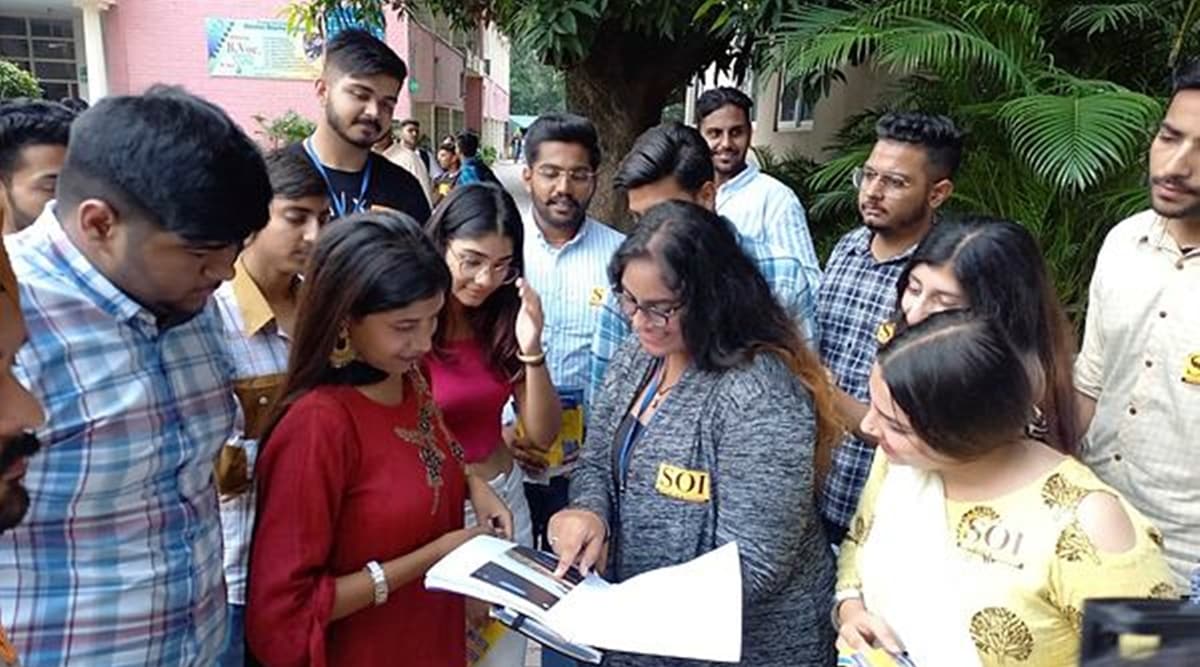 Universities in India are largely autonomous when it comes to appointments of faculty. (Express Photo)
Universities in India are largely autonomous when it comes to appointments of faculty. (Express Photo)The University Grants Commission recently unveiled its guidelines for transforming Higher Education Institutions (HEIs) into autonomous institutions. Drawing on the objectives of the National Education Policy 2020, the guidelines lay out a roadmap to transform colleges to either multidisciplinary universities or degree-awarding autonomous institutions by 2035. While there is little to disagree with in the ambitious objectives of the policy, the challenge is to restructure the institutional framework in the existing universities and structure a new framework for the potential universities that will make this transformation meaningful.
Are India’s current universities and colleges up to the task of producing workers for the knowledge society? Whichever prism one looks through — employability, quality of research or instruction — the results are underwhelming. Global employability surveys see fewer than 10 Indian institutions in the top 500 while local surveys routinely report a disproportionately large number of unemployable graduates.
It is then only natural that our own HEIs — the sword arm of our efforts to transform ourselves into a knowledge economy — should subject themselves first to a transformative process in line with the demands of the new policy so that their institutional weaknesses do not impair their critical role in fructification of the policy.
While the problems of poor instruction and the inability of most of our institutions to offer relevant skills are often cited as their weaknesses, these are in fact emblematic of a deeper malaise — the inability to upgrade or create knowledge, which otherwise should be the most crucial tasks of teachers in any institution. This inability is further situated in structural weaknesses.
Universities in India are largely autonomous when it comes to appointments of faculty. Logically, if autonomous institutions are accountable for delivering certain goals, they must have the authority to take actions which fulfill that mandate. However, unlike in many developed nations, higher educational institutions in India are largely state funded. Consequently, they suffer little in terms of resources when they hire poor quality faculty or when the selected faculty does not upgrade their skills. While regulatory bodies like the UGC have introduced grading systems, made financial grants dependent on grades obtained and introduced faculty monitoring and career advancement schemes, there is as yet no binding mechanism preventing non-performers in universities from free-riding on the efforts of performing colleagues. Thus the mode of appointments of teachers in universities has to be re-examined and mechanisms devised so that universities, in their own interest, appoint the best possible candidates. The exact mechanism as well as the matrix of incentives and disincentives for faculty performance may be left to the universities. But the current system where universities have the autonomy to appoint but no binding obligation to deliver is not serving India’s quest to transit to a knowledge economy.
In the same vein and closely related is the issue of curriculum. In a knowledge society, wealth is created primarily by the exploitation of knowledge as distinguished from societies where such improvement comes mainly from the application of tangible resources such as capital and labour. Therefore, knowledge creation and upgradation has ipso facto to be participatory.
Alternative institutions, business associations as well as practitioners and social entrepreneurs will cooperate as well as compete with formal bodies like universities and research institutes to produce knowledge. Institutional rigidities in formal institutions of learning have the tendency to block the free adaption of this knowledge. The UGC’s recent proposal of allowing educational institutions to hire experts as “Professors of Practice” is a recognition of this fact and an attempt to rectify this problem. But HEIs must do much more. They must engage and involve that section of experts who have the latest expertise and be innovative about how to involve them — their demands for scheduling, compensation and examination may need non-traditional solutions. But beyond appointments and as a general approach, administrators of India’s formal educational institutions must adopt an “Open Source” strategy and task their institutions to coordinate, evaluate and assimilate this “peer production/mass collaboration” of knowledge creation. This in turn will call for dismantling silos between academics and outsiders. Current straitjacketed recruitment norms have to give way to a more flexible architecture affording lateral entry to non-traditional creators and disseminators of knowledge to “plug in and play” in the higher education ecosystem. In the same spirit traditional academics can be encouraged to step out in the real world from time to time to practice through a defined, maybe temporary, lateral exit system.
While the NEP emphasises the significance of autonomy, the issue of accountability cannot be wished away. Considering that state universities and institutions are largely publicly funded, the accountability of the market is not imposed upon them. Perhaps it is not desirable either. However, quasi market accountability is already underway. Universities and HEIs will increasingly compete for learners not just with online courses delivered by peer institutions through the Academic Bank of Credits programme but with numerous Edtech companies, digital learning providers, employer schemes and industry bodies.
As the monopoly of traditional institutions over content delivery and as quality signalling agencies withers, learners will hold institutions accountable for results. Universities will find it increasingly difficult to ask governments to fund them with no questions asked and funding bodies including the state will progressively introduce performance-based funding and funding support may shift to the learners rather than the institutions. Only such universities and HEIs that will restructure themselves into nimble and modern educational services providers will survive this creative destruction.
Kansal is Principal Secretary, Higher Education, J&K and Sengupta is Professor of Economics, University of Jammu. Views are personal